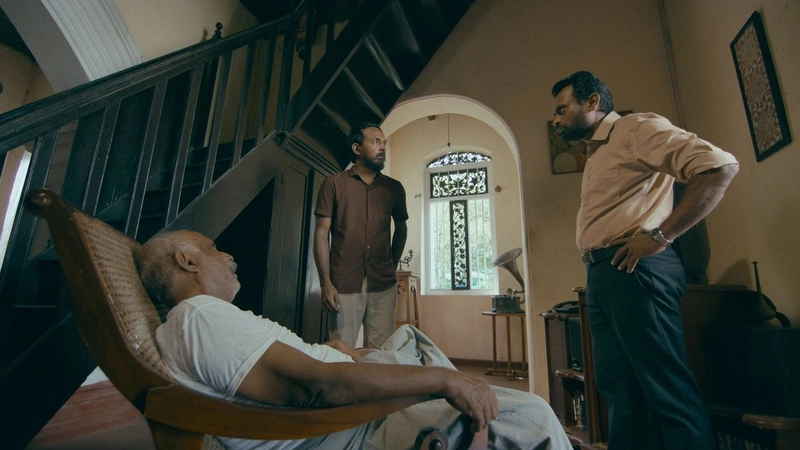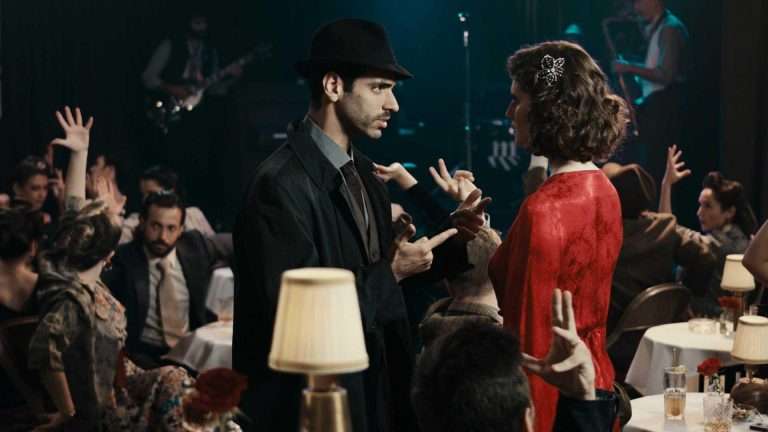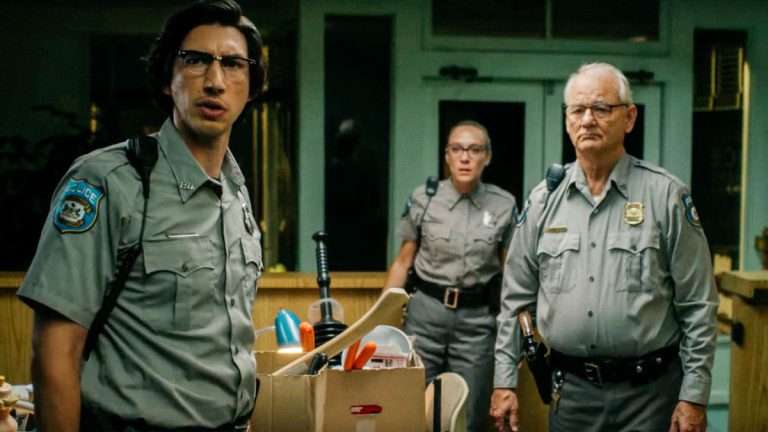We have recently witnessed the controversy surrounding Jo Koy’s comedy at the Golden Globes this year. Although some have criticized it as a collection of ineffective jokes, others have praised it as a challenging profession that calls for specific skills. Unfortunately, not everyone finds a silver lining in comedic situations. Yet, director Ilango Ram’s ‘Tentigo’ does have all the ticks on the assurance list to make you laugh genuinely.
“Tentigo,” aka “Nelum Kuluna,” starts with a family member’s death. “Nelum Kuluna” refers to the Colombo Lotus Tower, which might initially seem a little mysterious. In the film, Wilbert Jayabahu, who passed away on a wooden chair while watching TV, is spotted by his eldest son. While his son takes a moment to process his father’s death, he notices a strange shock on his father. As implied by the title of the film, he notices an erect penis that seems to be a staggering encounter. In his confusion, he decides to call his younger brother and spills the tea. Many long-suppressed shocks are gradually revealed as time passes, bringing to light all the skeletons in the closet.
The family members’ varied and somewhat dysfunctional personalities are crucial to the film’s structure. The filmmaker utilizes the dark comedy technique effectively to ensure the humor’s momentum is continuous, fresh, and, most importantly, evolving. One character is the eldest son, who is often the most solemn of the bunch. No matter the problem or obstacle he’s dealing with, he rarely cracks a smile – unless it’s just out of politeness.
In my opinion, the director intended for his character to exhibit the characteristics typically associated with the oldest child: a strong sense of responsibility and authority. Perhaps the younger brother is the one who allows things to take a turn for the worse. Since he is a truth-teller by nature, he isn’t very good at changing circumstances quickly enough to protect his family or himself. His problem with alcoholism is another flaw that clouds his judgment, which has deeper roots in his paternal lineage. The film once again legitimizes the idea that the youngest child will naturally be the most playful. An underlying definition of being the spoilt child often emerges from his swift yet non-helpful solutions.
Their mother (Kaushalya Fernando) comes across as the individual who ties them together. The mother finds herself torn between being helpful and silent as she grieves the loss of her husband and tries to tackle various problems at once. Rather than showcasing her patience, filmmaker Ram has her character deeply restrained, increasing the risk that she may explode at the worst possible moment. We have mostly witnessed actress Fernando in serious roles in ‘The Forsaken Land’ and ‘Flying Fish.’ Therefore, witnessing her playing a comedic role was a new experience, yet it was on par with her previous performances. Her versatility as an actress is clearly demonstrated here.

There are also a few other supporting roles like Kamala, who is paramount of nosiness, Punchi, who seems lost, and the spouses of both the brothers trying to balance their emotions, not to mention a few surprise guests to boost the mystery. By now, you can do the math of how these combinations of individuals come together amidst the funeral. Could this be Sri Lanka’s answer to “Death of a Funeral” by Frank Oz? It’s mostly debatable despite the similarities.
An element of superstition surrounds the family (not everyone, but most) as a pathway to solve the issue. The belief of a voodooist to perform rituals as a solution may not cater to everyone, but it is a sign of hope for some. You might wonder, “How could a man of religion be able to solve a medical issue on hand?”. The underlying issue here is the social difference between the community, which stresses the lack of open-minded individuals. Ignoring the comedic aspect, one possible interpretation is that the limitation of medical assistance leads to a rapid descent into superstition in the rural population.
The filmmaker illustrates the extreme urgency and impatience some individuals feel in their need for a quick solution, particularly in relation to a challenge surrounding a funeral. It appears to follow a trajectory similar to Lijo Jose Pellissery’s “Ee.Ma.Yau.” However, the driving force behind this is the fear of social rejection brought on by the taboo event. It is as if the family is protecting themselves from society to survive what comes next.
Technically, filmmaker and cinematographer Ilango Ram precisely captures the Sri Lankan middle-class community’s essence. The funeral home’s setting, the landscape’s extensive beauty, and the precision in maintaining the aura of chaos through visualization are all noteworthy. Notably, the variation of a twang-like sound effect to initiate the start of trouble itches viewers’ throats to prepare for a massive laugh. It is like a warning note that comes unannounced, making the whole viewing experience entertaining. For this, a round of applause is dedicated to the sound editor and sound supervisor, Nanda Nandi Jayakodi and Rangana Sinharage, respectively.
More concerns are revealed behind the laughter veil as the film goes on. ‘Do characteristics that run in families have an inherited quality?’ ‘How often do we communicate or discuss family matters among our closed connections?’ ‘To what extent is the community’s social order biased?’. This then leads to the most important question. ‘Do we really know the true nature of our loved ones?’.
Notably, “Tentigo” won the Special Jury Prize award at POFF last year. This comedy film sheds light on social stigmas, the importance of family ties, the mechanism of exploiters, and the social class discrepancy among the communities in Sri Lanka. Despite admiring the value of most Sri Lankan films that focus on arthouse and political dramas, I believe that “Tentigo” gives viewers a breath of fresh air. With the aid of witty writing and a perfect ensemble, this film stands out as a new-wave dark comedy entry from Sri Lanka.





